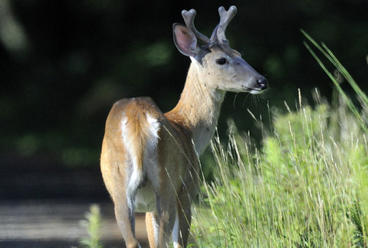
A new report with cross-CASC authorship offers guidance for disease-smart climate adaptation, addressing the lack of practical integration between wildlife disease management and climate-change adaptation.
Through four case studies, the authors demonstrate the unintended consequences climate adaptation actions can have for wildlife disease risks. As more natural resource agencies and conservation practitioners implement climate adaptation strategies, this report can be used as a resource to reduce the risk of adverse disease outcomes.
“Our intent is not to discourage adaptation initiatives, but rather to shine a light on potential unintended disease consequences and empower practitioners to anticipate and avoid negative outcomes. The tendency for disease outbreaks to complicate conservation efforts, both ecologically and socio-politically, justify efforts to prevent climate adaptation actions from unintentionally exacerbating pathogen transmission or disease. By assessing risk, incorporating uncertainty, planning for change, and monitoring outcomes, it is possible to reduce disease-related consequences and improve adaptation outcomes.”
Two members of the MW CASC community are contributing authors: Olivia LeDee, MW CASC Regional Administrator, and Benjamin Zuckerberg, Consortium Leadership Team Member and University of Wisconsin Associate Professor.
This report is an outcome of conversations held at the 2020 Climate Change & Wildlife Health Workshop, hosted by the US Geological Survey's National Wildlife Health Center and Climate Adaptation Science Centers.
